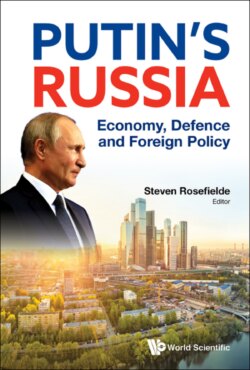Читать книгу Putin's Russia - Группа авторов - Страница 17
На сайте Литреса книга снята с продажи.
Misleading Benchmark
ОглавлениеThe World Bank’s modest short- and near-term expectations for the Russian economy reflect its outlook for a maturing global economy (perhaps even a climacteric) (Kindleberger, 1974). Its optimistic long-term attitude is a corollary of its faith in globalisation. The World Bank and International Monetary Fund consider most economies “normal” in a comprehensive development scheme that moves backward nations in stages from autarkic illiberal regimes to high-performing liberal members of the global community (Shleifer and Treisman, 2005; Rosefielde, 2005a). Each nation’s position in the global development hierarchy and a handful of technical factors including foreign direct investment, technology transfer, state macroeconomic management skills, education and integration into competitive global trade and financial networks determine economic performance everywhere. Moreover, the World Bank believes that political and social progress go hand-in-hand with economic globalisation. It expects Russia to eventually discard its Muscovite characteristics, democratise, liberalise, transition and integrate into a Western-led transnational global order with progressive values.
The World Bank knows that Russia has distinctive Muscovite characteristics, but as it perceives things, this does not change the fundamentals. The immutable laws of globalisation it insists must inevitably govern Russia’s economic, political and social performance. The attitude has some empirical validity. GDP growth does decelerate as emerging nations move up the development ladder. The transfer of macroeconomic management skills does allow less developed nations to cope better with involuntary underemployment, inflation, budgetary deficits, poverty, insurance transfers, education and social safety nets.
However, this is not the whole story. Modernisation does not settle the equally important issues of hegemony, hard power, market power, political power, corruption, inequality, economic justice, social justice, civil rights, environmental purity, other intangibles and well-being. Faster growth, full employment and modest inflation achieved within Russia’s imperfectly competitive market system with Muscovite characteristics will bolster the Kremlin’s economic power, but this is unlikely to prevent Moscow from continuing to undervalue consumer utility, abuse large segments of society and structurally militarise and browbeat its neighbours.
